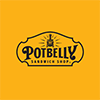
PBPB
Potbelly ($PBPB) Major Shareholder Signals Strong Confidence With $207,500 Purchase Following 18% Stock Plunge
03/31/2025 13:33
Sentiment
Summary
- Major shareholder David Nierenberg purchased 22,169 shares ($207,500) of Potbelly ($PBPB) after March stock plunge, continuing his pattern of buying during price weakness
- Q4 adjusted EPS of 13 cents significantly exceeded expectations (7 cents) and prior year (2 cents), but stock fell 15% due to disappointing Q1 guidance
- P/E ratio of 9.94 indicates undervaluation relative to industry, with analyst price targets of $16 suggesting 70% upside potential
POSITIVE
- Consistent buying pattern by key insider demonstrates confidence in long-term corporate value
- Q4 results significantly exceeded analyst expectations, confirming improving profitability trend
- EPS increased dramatically from $0.17 to $1.31 year-over-year, demonstrating strong earnings growth
- P/E ratio of 9.94 indicates undervaluation compared to restaurant industry averages
- Average analyst price target of $16 suggests significant upside potential from current levels
NEGATIVE
- Q1 2025 same-store sales guidance of -1.5% to -0.5% raises short-term growth concerns
- Revenue decreased 7.3% year-over-year as company undergoes adjustment due to refranchising strategy
- External risks persist including high competition in restaurant industry, inflation, and rising labor costs
Expert
Potbelly shows notable profitability improvements despite short-term store growth slowdown. The consistent buying activity by key insiders sends a strong signal that the current stock price undervalues its actual worth. Long-term outlook remains predominantly positive if the company continues to enhance operational efficiency despite challenging restaurant industry conditions.
Previous Closing Price
$17.01
-0.00(0.00%)
Average Insider Trading Data Over the Past Year
$9.33
Purchase Average Price
$0
Sale Average Price
$322.1K
Purchase Amount
$0
Sale Amount
Transaction related to News
Trading Date | Filing Date | Insider | Title | Type | Avg Price | Trans Value |
|---|---|---|---|---|---|---|
09/16/2025 | 09/16/2025 | Sale | $ |
Major shareholder David Nierenberg has once again made a significant purchase of Potbelly ($PBPB) shares following a sharp decline in stock price. According to SEC filings, Nierenberg acquired 22,169 shares worth approximately $207,500 on March 28th. This move comes shortly after the stock plummeted about 18% following the company's earnings release in early March, signaling strong insider confidence in the long-term value of the sandwich chain. Potbelly, founded in 1977 in Chicago, operates approximately 427 sandwich shops across the United States. The company specializes in toasted sandwiches, salads, and soups, competing in the fast-casual restaurant market. In recent years, it has focused on strengthening its digital ordering systems and expanding its franchise operations. David Nierenberg, through his investment firm Nierenberg Investment Management Company, Inc, has consistently demonstrated a pattern of increasing his stake in Potbelly during periods of stock weakness. Looking at his purchase history, a strategic approach of buying during dips becomes evident. When the stock fell to its yearly low of around $6.50 in early August, Nierenberg's investment company purchased a total of 74,345 shares worth approximately $486,000 over three consecutive days from August 5-7, 2024. Nierenberg continued this pattern with additional purchases on December 18, 2024 (4,740 shares at an average of $9.37) and January 7, 2025 (7,600 shares at an average of $9.23). Notably, these insider purchases have predominantly occurred during periods of stock weakness. The latest March-end purchase likewise followed a steep drop in share price from $11.81 to $9.66 in early March. Potbelly's recent financial performance shows improvement in profitability despite revenue challenges. In Q4 2024, the company reported adjusted earnings of 13 cents per share, significantly exceeding both the previous year's 2 cents and analyst expectations of 7 cents. Revenue came in at $116.63 million, down 7.3% year-over-year, though this decline was largely anticipated due to the company's refranchising strategy. Operating margins improved, and net income reached $4.61 million. Despite these positive results, the stock plunged nearly 15% on March 7, 2025, primarily due to first-quarter guidance that fell short of market expectations. The company projected same-store sales for Q1 2025 to decline between 1.5% and 0.5%, compared to a 6.3% increase in the prior-year period. However, the annual outlook remained positive, with full-year 2025 same-store sales expected to grow between 1.5% and 2.5%. Financially, Potbelly maintains a relatively solid position. Trailing twelve-month revenue stands at $462.60 million, with net income of $40.29 million. Particularly noteworthy is the substantial increase in earnings per share (EPS), which jumped from $0.17 in the previous year to $1.31. The current P/E ratio of 9.94 suggests the stock is undervalued compared to restaurant industry averages. Analysts continue to maintain a positive outlook on Potbelly. The average recommendation is 'buy,' with a median price target of $16.00, implying approximately 70% upside potential from current levels. Brokerage William Blair noted that product innovation, digital marketing efforts, and operational improvements have been driving the company's performance enhancements. Nierenberg's persistent buying activity can be interpreted as a strong signal of insider confidence in Potbelly's long-term business value. His decision to make substantial purchases following stock declines suggests he believes the current share price understates the company's intrinsic value. Insiders typically make investment decisions based on deep understanding of the company's business outlook, internal operations, and long-term strategy. Of course, investors should not base investment decisions solely on insider buying. Potbelly continues to operate in the highly competitive restaurant industry and remains susceptible to external factors such as inflation, rising labor costs, and shifts in consumer spending. The projected decrease in same-store sales for Q1 indicates there are near-term challenges to navigate. Nevertheless, the company's improving profitability trends, reasonable valuation, and consistent insider buying signals could be interpreted as positive indicators for long-term investors. The pattern of insiders actively purchasing shares after significant price declines often presents attractive entry points from a long-term perspective.